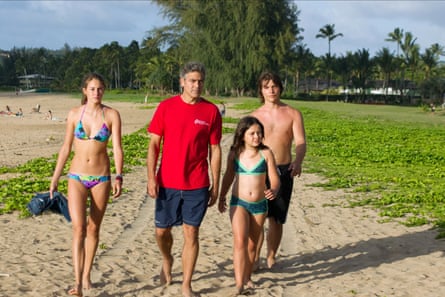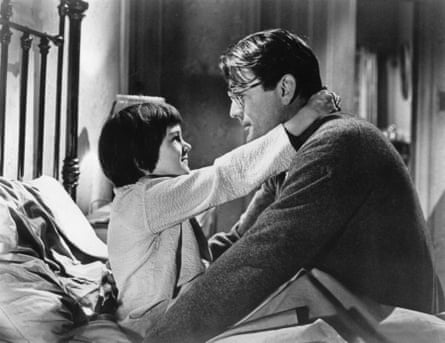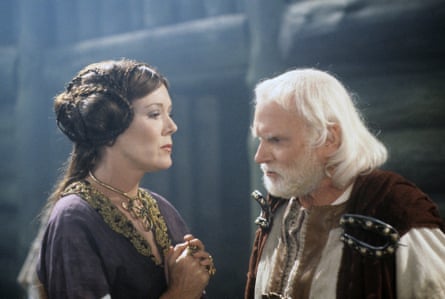
The often neglected bond between father and daughter is explored in Charlotte Wells’s acclaimed debut film, Aftersun, which opened in cinemas last week and stars Normal People’s Paul Mescal and newcomer Frankie Corio.
It tells the tale of a woman looking back on a holiday she spent as a child with her father. “Tale” is probably the wrong word because it’s much more about atmosphere, memory and the teasing ease and passing tensions that inform so many paternal-filial relationships.
As a father to three daughters, I’m no stranger to the conspiratorial jokes and lighthearted joshing that can offer relief from the fraught battles frequently waged by mothers and daughters. But being a father to a female child is not simply a joy, it’s also an empirical fact that it’s socially improving. A 2018 study by the LSE found that men were less likely to hold sexist attitudes if they had a school-aged daughter.
These findings have been underlined by another study, published earlier this year, that looked at the gender bias of US politicians. It compared how much legislators interrupted Janet Yellen, the chair of the US Federal Reserve from 2014 to 2018, with how much they interrupted men in that role. Transcripts of all meetings showed that there was a sharp increase in hostility towards Yellen, except in the case of those politicians with daughters.
As the authors of the first study wrote: “Through parenting, fathers of daughters may develop a better understanding of women’s and girls’ disadvantages in society, resulting in a significant shift in their attitudes towards gender norms.”
My daughters have certainly not been shy about bringing those disadvantages to my attention, while also making every effort to rise above them. Yet in spite of the instructive nature of parenting daughters, as well as the fascinating interaction of gender difference, the father-daughter relationship has seldom been the focus of films or, indeed, literature, particularly in terms of daughters in childhood.
One notable exception in recent years was Alexander Payne’s 2011 film, The Descendants, featuring George Clooney’s perfectly pitched performance as a slightly hapless middle-aged man struggling to guide his two daughters (one a stroppy teenager, the other a precocious youngster) through their mother’s death, while effectively being guided by them.
Despite the mournful subject matter, it’s essentially a comedy, which is perhaps the appropriate genre for a relationship that tends to use humour as a means of shared understanding.
In a sense those two stages – precocious youngster, stroppy teenager – are a critical dividing line in life as well as art. The pre-pubescent child, like Sophie in Aftersun, can be an endearing mixture of innocence, dependence and trust, but also capable of a kind of quasi-maternal concern. Adolescence cracks that all open, as budding womanhood thrusts its way forward and rudely announces that the rules have changed.
The transition is not always easy for fathers to adapt to, that rapid shift from holding hands on the school walk to the “You’re not going out in that!” alarm at the teenager’s show of sexuality and independence. I can look back at the pre-teen years of my youngest daughter with the kind of hazy nostalgia that provides the look and feel of Aftersun.

There’s that treasured period in which you’re the unquestioned repository of strength and security, but also the unembarrassing source of interest and entertainment. It’s when you get to play Atticus Finch to your questioning daughter’s Scout, that memorably staunch relationship at the heart of To Kill a Mockingbird. This is what Matt Wotton, from the London Centre for Applied Psychology, calls “the easy phase”.
Child therapists talk of “creating moments of connection”, and my youngest daughter and I would have bespoke adventures together – reading the history of the world, long drives listening and singing to music, white water kayaking.
One time we drove across France, just the two of us, to visit friends in the Cévennes. My daughter was around the age of the girl in Aftersun, and the world through her eyes looked both incomprehensibly large and full of limitless promise. She was young enough to want to share a room, amid the vast surrounding wilderness with its wild boars and rifle-carrying hunters, but old enough to realise that the dear friend we were visiting was very ill – she had less than a year to live. And in one of those disarming role reversals, I remember my daughter being worried about my feelings.
We use the phrase “fast-forward” to convey jumping ahead in time, but that’s what it felt like when she was suddenly 15, insisting that she had to stay late at a party, and I was the fun-crushing bore demanding to know how she was going to get home. It was as if time had grown weary of linearity and decided to skip a whole period of adjustment.
Wotton says that he sees a lot of men who struggle with the emotional demands of parenthood. They tend to see the idea of helping their daughters through adolescence, he says, as “an elite level of skill” beyond their experience or know-how. They can do the stage when they are idealised by their young daughters, but often “go missing” during the key teenage years of development.
The stereotype of the clueless father, perplexed by a child who has become sexually attractive to boys and men, is changing, he says, but it’s not yet out of date. “‘Dad was absolutely at ease with boyfriends, menstruation, all my different friendships, he was a tower of strength for me. When he didn’t understand, he would simply ask and listen’ – that’s very seldom the version of events,” says Wotton dryly.
But one way or another, with or without their fathers’ help, daughters do make it through those difficult transitional years, and often strike up a more mature version of that initial pleasing and teasing relationship. It’s Mr Bennet and Elizabeth, although hopefully without the rigid 19th-century patriarchy.
The mood that permeates Aftersun is that of loving acceptance, as the grown woman recalls the young and slightly wayward father who took her on holiday. Wotton says that he finds as daughters grow into adulthood they often forgive their fathers for their hopelessness.
“Dad tried his best but made an absolute mess of it, but he did so with good intent” is the kind of typical reasoning he encounters. “There’s usually something hiding out in the dad’s story,” he says, and not infrequently it’s the father’s father, who was even less equipped with emotional intelligence.
What’s clear is that fathers need to accept losing the mantle of being their little girl’s superman. The slings and arrows of family life tend to expose paternal shortcomings sooner or later. My own daughters could no doubt identify some of my more glaring wrong turns.
But they are all blessed, like the daughters Wotton has seen, with a marked talent for forgiveness. They are all three of them Cordelias, only with a sense of humour. I’m relieved to say there are no Gonerils or Regans in our family.

A tragic masterpiece it may be, but King Lear is no great advert for father-daughter relations. A doddery egomaniac, bequeathing his power and wealth in return for professions of love, and two scheming daughters who have nothing but contempt for the old fool – no one emerges well, except the saintly Cordelia.
Happily, I don’t have a kingdom to disperse, so there isn’t much I have in common with Lear, other than three daughters and a habit of walking on the heath in raging storms. But during the more challenging years, we often employed in our household – with heavy irony – Lear’s quote about Goneril: “How sharper than a serpent’s tooth it is to have a thankless child.”
However, like most daughters, mine have been anything but thankless. In truth, I am the one to be thankful. They have taught me so much – the lyrics of Taylor Swift, the drenched delights of waterskiing, and the discreet pleasures of long, gossip-filled dog walks.
But, most of all, they have taught me how to be a father.
How they will look back on me, how any daughter makes sense of her father, is something none of us can ever know. But let’s hope it’s with the same indulgent glow of understanding that is celebrated in Aftersun.


